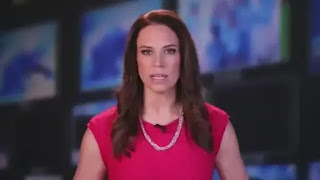Wednesday, November 2, 2022
Taxonomy of Education Disruptors (2022 Edition)
Tuesday, November 1, 2022
PA: Anti-Union Halloween Trick
There's a scene in many vampire movies. Someone (usually not the hero) is holding a vampire at bay with a cross. The vampire locks eyes with him. "You don't need to do that. You are perfectly safe from me, and I know that cross is just starting to feel heavy. Heavier and heavier. Why don't you just put it down." And the camera closes in on our intrepid human-- will he put the cross down?
Monday, October 31, 2022
MI: Tudor Dixon is a bad choice
Let's get one thing straight--no matter what she says to the contrary, Tudor Dixon is not in favor of school choice.
Dixon is the gubernatorial candidate heavily backed by the DeVos family, and they aren't really in favor of school choice, either.
School choice implies a world in which students can select from a wide variety of educational options. But that is not where privatizers of the DeVos strip have been steering us. As I've argued before, the public school system isn't even the major obstacle for a true choice system.
But like our Puritan forefathers, these far-right folks are not interested in a nation in which everyone is free to learn as they wish. They would like to see an end to public education because they see it as not aligned with their values (and it takes their money to educate Those Peoples' Children). What they want is a system in which their own values are ascendant.
Consider this one example-- Tudor Dixon complaining that her child was accidentally exposed to a book about divorced people.
Dixon complained that her daughter had checked out a book "about having two different homes" and how the very idea of divorce "caused an unnecessary anxiety.""Why was this something she was just able to pick up off the shelf?" Dixon inquired.
Sunday, October 30, 2022
ICYMI: Spooky Spooky Edition (10/30)
Sec. Ryan Walters plans to 'eliminate' an educational accountability commission he leads
There Are Just 90 LGBTQ School Board Members. Half Were Threatened, Harassed
Despite what you hear, parents aren't in charge of schools. That's a good thing.
Saturday, October 29, 2022
Do Charters Damage The Teacher Pipeline
Well, this is an odd little piece of research.
The National Center for Research on Education Access and Choice (REACH), aka Doug Harris, the guy who brought us all that research saying that all-charter New Orleans was hunky dory, has produced a new report looking at how charter schools affect the supply of teachers from university-based education programs.
Short version: in cities, when you get more charter schools, you get fewer teachers coming out of college and university teacher prep programs. Harris finds that elementary, math, and special ed suffer the most. .
This would be an excellent time to remember that correlation is not causation (here's the awesome spurious correlations website to remind us that, among other things, cheese consumption rises with the number of people killed by being tangled in bedsheets, and swimming pool drownings rise and fall with Nicolas Cage film appearances).
So charter schools and the teacher pipeline might very well have absolutely nothing to do with each other. We need to be clear on that right up front.
But if they are connected, what could explain that?
Harris and his co-author Mary Penn don't have an explanation for the connection, which they first noticed while doing their New Orleans research.
The National Alliance for Public [sic] Charter Schools offered a rebuttal. Part of it was just a silly tautism-- there are fewer teachers coming out of traditional programs because there are fewer persons entering programs. And then this:
Although charter schools are a convenient scapegoat for the report author, they are simply not the cause of the nation’s teacher shortage. Given the dire labor shortage, we as a nation need to be open to alternative certification and preparatory programs that attract talent from untraditional sources and provide teachers for the classrooms that desperately need them. Charter schools seem to understand that point.Friday, October 28, 2022
Economists Should Not Be In Charge
Most of us believe that we do stuff because we want to be good people, and that other people act the same. But the dominant political philosophy for the last half-century, "economism," views us as slaves to "incentives" and nothing more.
Economism is the philosophy of the neoclassical economists, whose ideology has consumed both the Democrats and Republicans. They dismiss all "non-market" solutions (that is, projects of democratically accountable governments) as failed before they're begun, due to the "incentives" of the individuals in the government.
"If economists wished to study the horse, they wouldn’t go and look at horses. They’d sit in their studies and say to themselves, ‘What would I do if I were a horse?’"
For economists, anything that is not done in self-interest is irrational. Every problem is addressed from an angle of "what would this person do to get the maximum personal benefit," and anyone who doesn't appear to be acting on that question is irrational. Even if a vast number, even a majority of people, don't follow that guide, they are still considered irrational by the economists, who do not stop to think that maybe observing how people actually behave might be useful.
This "irrationality" could also often be called "ethics" – for example, the decision in various "ultimatum games" to punish selfish people, even if it means getting less for yourself. You can view this as "irrationality" if your sole conception of human motivation is "how do I get more for myself?" But you can equally say, "I don't like people who betray the social contract and I am prepared to go with less if it means punishing them."
But by insisting that ethics are irrational, economism can actually do away with them. Michael Sandel's 2012 book "What Money Can’t Buy," offers examples of things that you shouldn't be subject to market forces, like concierge medical services. A decade later, these have gone from examples of the unthinkable to actual products.







